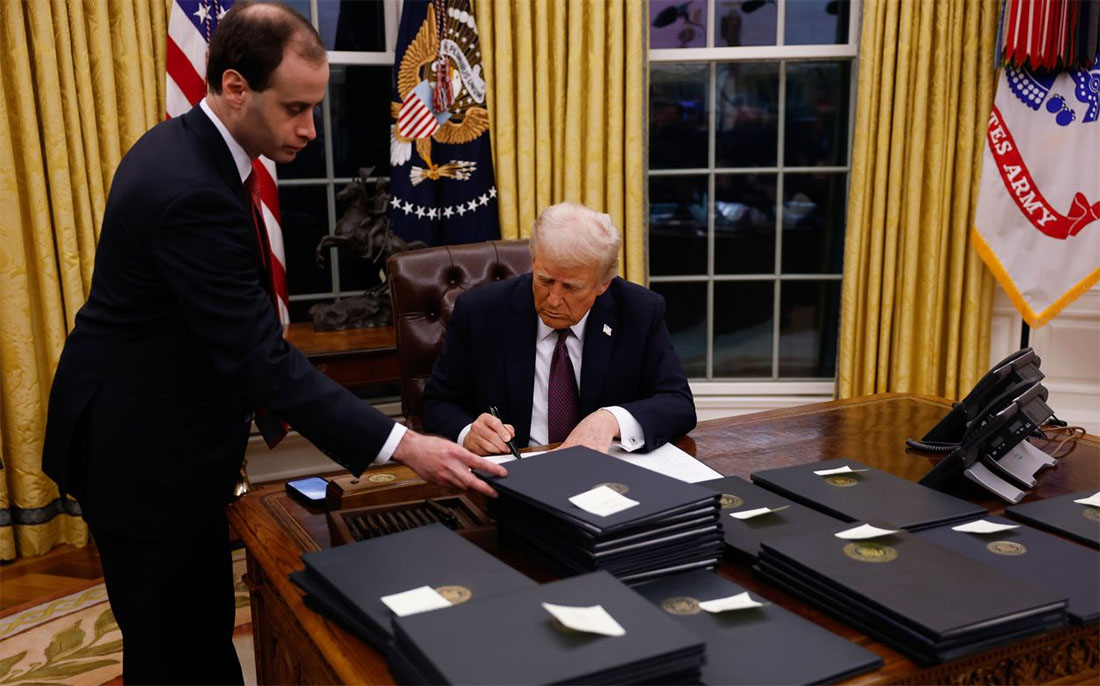Photo Credit: Getty Images
European retail shares plummeted Thursday following President Donald Trump's unexpected tariff announcements targeting Southeast Asian manufacturing hubs. Sportswear giant Adidas saw its stock drop 10% as investors reacted to the news.
The new tariffs specifically target countries where many European and American companies manufacture their goods. Cambodia faces the highest rate at 49%, followed by Laos at 48%, Vietnam at 46%, Thailand at 36%, and Indonesia at 32%. Sri Lanka and Bangladesh, also key manufacturing locations, were hit with rates that analysts at Citi described as "much worse than expected."
"How can companies reliably think about where they're going to produce, sell and market their goods, when they have no idea what [tariffs are] going to be here in six months or four years?" questioned Cailin Birch, global economist at the Economist Intelligence Unit, in an interview with CNBC.
European retail stocks experienced significant declines across the board. Jewelry-maker Pandora fell 11%, while German sportswear firms Puma and Adidas dropped 11% and 9.7% respectively. British retailers were not spared, with JD Sports down 5.5%, Dr. Martens losing 5.9%, and luxury brand Burberry shedding 6.2%.
The impact extends to American retailers as well. Nike shares tumbled 13%, reaching their lowest level since 2017. Other sportswear brands including Lululemon, Skechers, Under Armour, Deckers, and On saw declines between 10% and 17%.
According to Russ Mould, investment director at AJ Bell, "The companies with the greatest challenges may be those where a big portion of their total sales are into the USA and where a big portion of their supply chain is based in Asia."
Garment manufacturing represents a critical economic sector for many affected countries. In Cambodia alone, nearly one million people work in garment and footwear factories that produce approximately 70% of the nation's exports.
The International Apparel Federation, representing manufacturers across 40 countries, called the tariffs a "major shock" and warned that "ultimately, someone will have to pay the price."
Unlike during pandemic-era inflation, consumers may struggle more with price increases this time. Birch noted that previous price rises coincided with government stimulus, strong labor markets, and wage growth—conditions not present in the current economic environment.
As companies assess their options, quick solutions appear limited. "Some companies might be able to change where they produce for the U.S. market, but that usually takes years, not days," explained Brian Jacobsen, chief economist at Annex Wealth Management.


